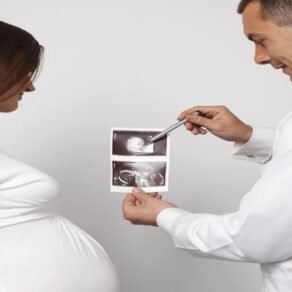Introduction: The Intersection of Contraception and Pregnancy
Pregnancy is a time of excitement, anticipation, and significant life changes. However, for women who have a copper intrauterine device (IUD) in place as a form of contraception, the discovery of pregnancy can bring about unique challenges and considerations. In this article, we’ll explore the pregnancy with copper intrauterine device , shedding light on the potential implications, risks, and decisions faced by expectant mothers in this situation.
Understanding the Copper IUD
The copper IUD, or copper coil, prevents pregnancy by releasing copper ions, toxic to sperm, thus hindering fertilization. Unlike hormonal IUDs, which prevent ovulation and thicken cervical mucus, the copper IUD is a long-acting reversible contraceptive inserted into the uterus.
Discovering Pregnancy with a Copper IUD
While highly effective, the copper IUD isn’t infallible, and pregnancies can occur, albeit rarely, with it in place. Discovering pregnancy while using a copper IUD can be unexpected, raising concerns about pregnancy safety and implications for the IUD.
Risks and Considerations
A primary concern with pregnancy and a copper intrauterine device is the risk of ectopic pregnancy, where the fertilized egg implants outside the uterus, often in the fallopian tube. Ectopic pregnancies require prompt detection and treatment to prevent life-threatening complications, making early monitoring crucial for women with an IUD history.
Decision-Making and Next Steps
Discovering pregnancy with a copper IUD prompts important decisions about managing both the pregnancy and the IUD’s future. Options, based on factors like pregnancy location, maternal health, and personal preferences, may involve IUD removal, close pregnancy monitoring, or necessary medical intervention.
Conclusion: Navigating the Journey
In conclusion, pregnancy with a copper intrauterine device presents unique challenges and considerations for expectant mothers.Discovering pregnancy unexpectedly prompts the need to understand its risks and implications for informed decisions about pregnancy management and future contraception. Seeking guidance from healthcare providers and exploring options empower expectant mothers to confidently navigate this journey for the best possible outcome for themselves and their growing baby.




